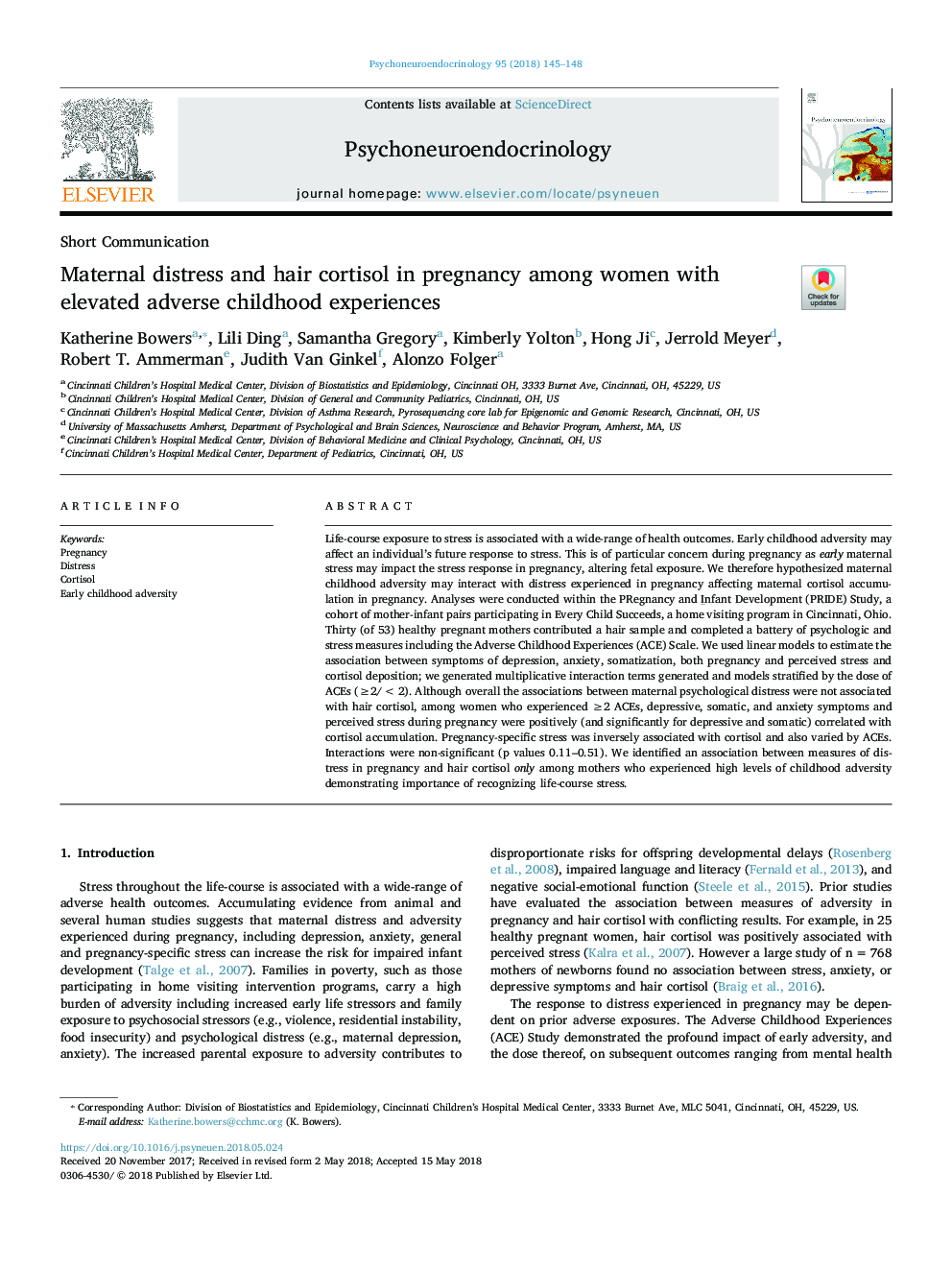| Article ID | Journal | Published Year | Pages | File Type |
|---|---|---|---|---|
| 6817537 | Psychoneuroendocrinology | 2018 | 4 Pages |
Abstract
Life-course exposure to stress is associated with a wide-range of health outcomes. Early childhood adversity may affect an individual's future response to stress. This is of particular concern during pregnancy as early maternal stress may impact the stress response in pregnancy, altering fetal exposure. We therefore hypothesized maternal childhood adversity may interact with distress experienced in pregnancy affecting maternal cortisol accumulation in pregnancy. Analyses were conducted within the PRegnancy and Infant Development (PRIDE) Study, a cohort of mother-infant pairs participating in Every Child Succeeds, a home visiting program in Cincinnati, Ohio. Thirty (of 53) healthy pregnant mothers contributed a hair sample and completed a battery of psychologic and stress measures including the Adverse Childhood Experiences (ACE) Scale. We used linear models to estimate the association between symptoms of depression, anxiety, somatization, both pregnancy and perceived stress and cortisol deposition; we generated multiplicative interaction terms generated and models stratified by the dose of ACEs (â¥2/<2). Although overall the associations between maternal psychological distress were not associated with hair cortisol, among women who experienced â¥2 ACEs, depressive, somatic, and anxiety symptoms and perceived stress during pregnancy were positively (and significantly for depressive and somatic) correlated with cortisol accumulation. Pregnancy-specific stress was inversely associated with cortisol and also varied by ACEs. Interactions were non-significant (p values 0.11-0.51). We identified an association between measures of distress in pregnancy and hair cortisol only among mothers who experienced high levels of childhood adversity demonstrating importance of recognizing life-course stress.
Related Topics
Life Sciences
Biochemistry, Genetics and Molecular Biology
Endocrinology
Authors
Katherine Bowers, Lili Ding, Samantha Gregory, Kimberly Yolton, Hong Ji, Jerrold Meyer, Robert T. Ammerman, Judith Van Ginkel, Alonzo Folger,
